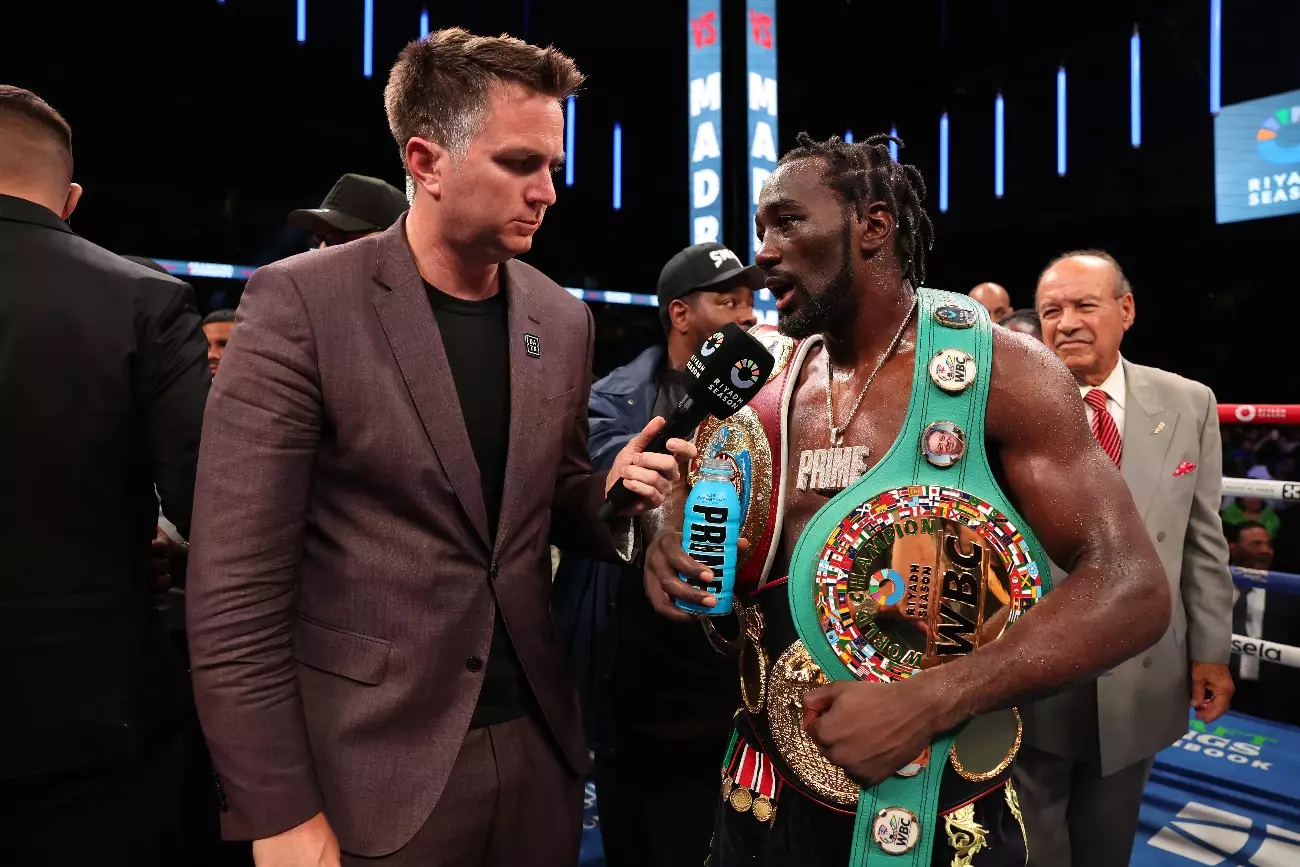In the flashy and often unpredictable world of combat sports, few topics elicit as much debate as crossover bouts—those intriguing matches that pit athletes from different fighting disciplines against one another. The recent proposition made to Terence Crawford, the reigning boxing pound-for-pound champion, exemplifies this trend. A lucrative two-fight deal with Conor McGregor—a boxing match followed by an MMA contest—was on the table, yet Crawford declined, making a significant statement about integrity and the value of one’s legacy over monetary gain.
Crossover fights have gained considerable traction in recent years, drawing interest from fans and promotions alike. The allure of seeing two top-tier fighters from contrasting backgrounds summons curiosity, and it often promises a financial windfall for those involved. Notably, Conor McGregor has been at the center of such encounters, famously facing Floyd Mayweather in a boxing ring—a match that generated immense hype and mixed results. While events like this can be financially stroke of genius, they often boil down to the question of authenticity: does the excitement of a crossover match compensate for the potential dilution of the athletes’ respective sports?
Nevertheless, Crawford’s refusal to engage with McGregor in an MMA setting casts a significant shadow over the ongoing dialogue surrounding these bouts. In his candid remarks to Bernie Tha Boxer on YouTube, he articulated a clear emotive stance on the matter, stating, “I ain’t getting into no f*****g Octagon with you,” which provoked laughter but also underscored the serious implications of stepping into a cage.
Choosing to prioritize legacy over financial gain is a brave stance, especially in an industry where fame and wealth often dictate decisions. Crawford’s illustrious career has been marked by his prowess in boxing—notable victories, championships, and an unblemished record speak volumes about his skill and dedication. The prospect of engaging in an MMA bout, despite the staggering financial incentives—reportedly in the hundreds of millions—could tarnish his reputation and legacy within the boxing community.
Crawford’s refusal to risk his legacy indicates an awareness of his standing in combat sports; he comprehends the nuances of each combat style and acknowledges the disadvantages presented by a switch to a different format. As he articulated in his discussion with McGregor, “You’re going to be at a disadvantage,” he recognizes the peril intrinsic to stepping outside one’s expertise. While fans may have reveled in the suspense surrounding such a crossover, Crawford saw through the glitz, understanding that a loss—even in a non-boxing context—could impact perceptions of his career.
As we’ve seen previously, the spectacle created around crossover fights often leaves audiences pondering their true value. Many spectators reminisce about the Mayweather-McGregor match—a considerable financial success, yet also a battle that highlighted the gulf between boxing and MMA skill sets. Crawford’s potential encounters with McGregor, while commercially enticing, raise concerns about authenticity. Are these events truly competitive, or merely staged spectacles?
With the influx of crossover bouts diluting the purity of each combat sport, Crawford’s stance becomes a point of reflection for athletes across disciplines. Is the call of financial gain strong enough to justify the risks involved? For Crawford, the answer is a resounding “no.” His integrity in declining an extravagant offer not only preserves his career achievements but sets a standard for future fighters who may face similar temptations.
In a landscape often dominated by headlines and spectacle, Terence Crawford’s significant decision to refuse a crossover match delineates a crucial distinction between being a fighter and being a champion. While opportunities for maximizing financial gain exist, Crawford’s choice illustrates that authenticity and respect for one’s discipline hold a more substantial place in the hierarchy of values among elite athletes.
As the world of combat sports evolves, Crawford stands as a figure advocating for integrity and legacy over mere financial benefit, reminding both fans and fighters alike that true respect in any sport lies beyond the ring or the cage—and ultimately within a fighter’s heart and soul.

